Typically experts work with hard data – they deal with numbers, observe trends, and make forecasts; their reflections often result in new knowledge about the subject studied, or in advice about immediate or future action paths. In the CASI project we challenged experts with a different kind of input – citizens’ visions for a sustainable future.
Visions are often thought out at the beginning as realistic or probable, but usually end up as metaphors of a possible future. Sometimes they can be brave, sometimes – naïve, sometimes – provocative, even absurd. As such, visions are the result of collective reflections on hopes or fears, on desires or aspirations, which are typically rooted in one’s past or present, and through deliberation with others and rethinking of personal experiences get transformed into ideas for the future.
But how difficult is it then to use such visions as sources for inspiration in an expert-focused process of developing research priorities and recommendations that are to be taken seriously by policy- and decision-making bodies in the EU?
In the CASI project we invited more than 20 renowned experts from across the EU. We asked them to review a total of 50 different citizens’ visions, and presented them with the challenge to turn those into research priorities with an outlook beyond the year 2020. The gathering, which took place in the Danish capital of Copenhagen on June 8th and 9th, demonstrated the potential of citizen consultations as the first step in a broader bottom-up policy design process, where suggested research priorities were derived in a highly participatory and non-conventional way (more on the actual results of the experts workshop will become available later in the summer of 2015).
The added value of such a process stems from the fact that experts are presented with issues, which typically remain obscure or uninteresting to “traditional” analysts and policy monitors, but are foundational parts of citizens’ visions. Experts’ work is in fact “multidisciplinary collaboration”, so that a number of scientific perspectives are applied simultaneously. This is particularly important to the topic of sustainability, since it is in itself a concept of interdisciplinary nature, which integrates social, economic and environmental concerns. Hence, sustainability problems should not and cannot be addressed from just one or two of these three perspectives, since they are all equally important.
The requirement to integrate an outlook to the future is challenging, but underlines the innovative nature of the process. Experts are expected not only to formulate short-term research objectives, but rather to apply some anticipatory thinking and apply their expertise towards longer-term, advanced, perhaps even radical, solutions.
The final product of the experts work is of course meant for policy and decision-makers in the first place. However, the citizens, whose visions were used as the source for the expert analysis, will have the opportunity to learn about the experts’ recommendations and reflect on the possibilities for public engagement towards the pursuit of each priority in the autumn of 2015.
Stay tuned!
Relevant themes:
Public participation, Sustainable innovation
Relevant tags: Sustainability

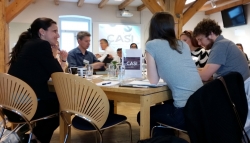

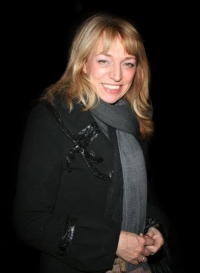






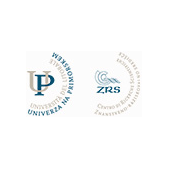




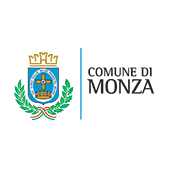







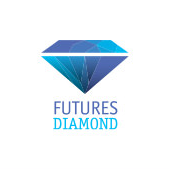


"Visions are often thought out at the beginning as realistic or probable, but usually end up as metaphors of a possible future. Sometimes they can be brave, sometimes – naïve, sometimes – provocative, even absurd."
I took this sentence from the post to make a comment. It is about dreaming for the better future and how important is to go high, to overcome obstacles, and to never stop chasing our dreams. Citizens visions are valuable input to expert driven process of creating policy priorities and recommendations. What more is needed, is a leadership, to foster the process and make it productive, to drive on the expectations of citizens and to encourage them to aim high and to foresee the long-term trends. See a brilliant quote:
"The greatest danger for most of us is not that our aim is too high and we miss it, but that it is too low and we reach it."
— Michelangelo